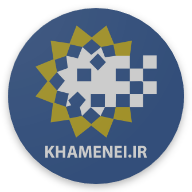Richard Falk is an international law and international relations scholar who taught at Princeton University for forty years.
In 2008 he was also appointed by the UN to serve a six-year term as the special rapporteur on Palestinian human rights. While leading a mission to the West Bank and Gaza to draft a report on Israel's compliance with human rights standards and international humanitarian law, Richard Falk was detained upon arriving at Ben Gurion airport in Israel.
Professor Falk was separated from his UN companions- who were allowed to enter Israel-only to be taken to the airport detention facility.
He was locked up in a tiny room that smelled of urine and filth.
He spent the next 15 hours there with no facilities available for the UN representative rather than “dirty sheets, inedible food and lights that were too bright or darkness controlled from the guard office” before he was deported.
Richard Falk who continued serving as the UN special rapporteur on Palestinian Human Rights for a 6-year term was interviewed by the English section of Khamenei.ir.
Why Israeli occupation forces use excessive force against the rights of Palestinians to pray at Masjid al-Aqsa?This encounter relating to Masjid al-Aqsa was a periodic effort by Israel to challenge Waqf control over this sacred religious site, and tighten overall its hold over Jerusalem and the Palestinian people.
The response by Muslims was so strong that it has seemed to make Israel back down at least temporarily, apparently fearing the onset of a third Intifada, which may yet happen.
As for excessive force, Israel consistently uses force beyond any possible security justification with the goals of humiliating the Palestinians and making their national struggle appear hopeless.Is it safe to say the latest abuses against Palestinians are the results of compromise with Israeli occupation? Is UN complicit in these abuses? Yes, in the sense, that the failure to challenge Israel more directly to comply with international law, with respect to withdrawing after 50 years from the occupied Palestinian territories of the West Bank, East Jerusalem, and Gaza violates the spirit and the substance of unanimous Security Council Resolution 242 adopted in 1967 and with regard to the settlements, the blockade of Gaza, the separation wall, imposition of apartheid, and the reliance on collective punishment.
Having been protected from any adverse effects for all these years, Israel has consistently pursued its expansionist agenda, and tested the limits of what it could do.Tzachi Hanegbi, a close ally of Netanyahu, threatens Palestinians with ethnic cleansing in response to the latest round of violence; what’s your take on that? There has been ethnic cleansing all along, especially in Jerusalem where unlawful Jewish settlements have altered the demographic and ethnic character of the Old City. What are the greatest achievements of resistance to Israeli occupation for the Palestinians? It is difficult to select any specific achievements as the Palestinian courage and persistence in the face of Israeli violent occupation and other abuses is itself a persevering demonstration of valiant Palestinian resistance.
From a historical perspective, especially, the two intifadas of 1987 and 2000 were dramatic demonstrations of massive Palestinian resolve to achieve self-determination.
It is relevant to point out that the second intifada was a response to Ariel Sharon’s provocative visit to Al Aqsa accompanied by hundreds of armed guards.
Also notable resistance efforts have been made by the people of Gaza in reaction to the massive Israeli attacks in 2008-09, 2012, and 2014, as well as to the periodic harassment and cruelly implemented blockade kept in place since 2007.
There are also numerous daily acts of heroic resistance that we rarely learn about, ranging from demonstrations against the wall in several Palestinian towns every week and a variety of hunger strikes.

